by: Banzai
When Buying a Used Car Privately, Beware of “Curbstoning”
Auto dealers are expected to sell cars that meet certain consumer protection criteria. This may include providing a warranty that will cover the buyer’s costs if a car turns out to be a lemon. Unfortunately, some unethical dealers may attempt to bypass these laws by curbstoning. Curbstoning is when a dealer poses as a private seller to sell a car. By curbstoning, an unethical dealer can avoid having to comply with the regulations that apply to dealers. To a buyer, this could mean buying a car that has a salvaged title (a car that’s been declared a total loss by an insurance company). It could also mean unknowingly buying a car that has been in a flood and suffered severe water damage.
Common Scam Prevention Tips
EmailsStart by checking the sender’s email address; legitimate organizations use official domain names, so be cautious if it appears unusual or contains misspellings. Pay attention to the email’s tone and grammar; scammers often use urgency, fear, or overly formal language to exploit recipients. Be careful with unexpected attachments as they may contain malware. Never send personal or financial information in an email and keep your anti-virus software and operating system up to date.
Red Flags of Holiday Scams
As the holiday season approaches, it’s a time of joy, celebration, and unfortunately, an uptick in various scams aiming to take advantage of your festive spirit. Kohler Credit Union is committed to ensuring you remain safe and secure by sharing valuable insights on how to safeguard yourself from scams.
by: Jean Chatzky @ SavvyMoney
6 Tips For Teaching Your Kids to Save
by: ChatGPT
Budgeting Blitz - Tackling Financial Goals One Minute at a Time
A Guide to Saving Money Effectively: Budgeting is a powerful tool that empowers you to take control of your finances and save money. When done right, budgeting can help you allocate your income wisely, minimize unnecessary expenses, and work towards achieving your financial goals. Here's a step-by-step guide to budgeting properly and maximizing your savings:
by: Banzai
When You Can't Afford Your Minimum Payments
It’s scary to find yourself in a situation where you can’t afford your monthly debt payments. Whether that’s due to a sudden life change, like a job loss or illness, or if you’ve simply found yourself unable to keep up, there are steps you can take.
by: Banzai
Portfolio Building
As logical as it might seem to look for the perfect stock, bond, or mutual fund and make it your investment of choice, that’s not the best approach to meeting your financial goals. No single investment, or type of investments, provides a strong return year in and year out.
by: Banzai
To Buy or Not to Buy?
They say there’s no place like home, but does that mean you have to purchase one to get the benefits? Just like everything else, buying a home has its pros and cons.
by: banzai
8 Internet Safety Rules for Kids
Cyberbullying, cyberstalking, and internet scams are on the rise—how can we help kids navigate the internet safely?
by: Banzai
What a Car Loan Costs
by: Banzai
Reasons to Refinance
Refinancing can be beneficial if everything lines up in your favor. What can you get out of it? The list is long and exciting for someone stuck with loan payments that they aren’t happy with.
by: Banzai
Transitioning to Retirement
Transitioning to retirement takes planning and preparation. But if you're wise, you can set yourself up for success.
by: Banzai
Talking to Your Partner About Money
When it comes to talking with a spouse or partner about money, many people shy away. It can be scary—but it doesn’t have to be. Positive and frequent communication is key.
by: Banzai
Making and Spending Money
by: banzai
Selling Your Home
Whether you need some more space, are ready to downsize into something a bit more manageable, or are relocating to a new place, you should prepare for the emotional and financial impacts of selling your home.
by: banzai
Insuring Your Home
Home Insurance is absolutely essential to protect what is likely your largest investment: your home.
by: banzai
Learning to Budget
A budget is a plan for how you’ll spend your money. To create one, you divide your income (the money you get) into your expenses (the things you buy).
by: banzai
Working with a Mortgage Lender
Applying for a mortgage is a big endeavor. Most lenders require you to complete a mortgage application—a comprehensive financial statement.
by: banzai
Is the Money in My Account Safe?
Your financial institution is one of the safest places to store your hard-earned cash. The best part? All you have to do is open an account.
by: Banzai
4 Tips for Using Peer-to-Peer Payment Apps
Whether you’re splitting the bill at a restaurant with friends, paying back your parents, or buying snacks at a sports event, it’s hard to beat the convenience of peer-to-peer payment apps like Venmo, Zelle, Google Pay, Cash App, and PayPal.
by: banzai
50 Internet Safety Tips for 2023
Cybersecurity risks have grown just as rapidly as technology has and online scam artists are always finding new ways to lower a system’s defenses.
by: banzai
3 Jar Allowance for Kids
The sooner you teach your children the basics about budgeting, the better, and the 3-jar money system is a great way to get started.
by: banzai
Completing a Return
Filing a tax return is a matter of following the line-by-line instructions that come with your tax form. Each form has its own set of instructions and includes a number of charts and worksheets to help you figure out if you're eligible for credits, deductions, and exemptions.
by: banzai
Scams Targeting Seniors
Scammers target seniors more aggressively than any other group. Recognizing the most common scams helps prevent your money and personal information from getting stolen.
by: banzai
Paying Taxes
Many major life changes, such as buying a new home, changing jobs, getting promoted, starting a business, having a child, and more, will have tax implications. But that doesn't always mean you'll owe more to the federal government.
by: banzai
Tax Brackets and Statuses
How much you owe in federal income taxes is determined by many factors, but your tax bracket and status will likely have the biggest impact.
by: banzai
Meet Your 401(k)
Even if you’re just starting your first real job—actually, especially if you’re just starting your first real job—it’s time to start thinking about retirement. That’s not a comment on how motivated or unmotivated you are, or a suggestion that you should wish your life away. It’s just reality.
by: banzai
Tracking Your Joint Expenses
It’s hard enough keeping track of your own expenses. So you shouldn’t be surprised that managing money as a team effort can test your patience, especially if your partner has a different method of keeping financial records—or worse, no method at all.
by: banzai
Picking the Right Credit Card for You
Finding the right credit card isn’t as easy as filling out the first application you get in the mail—or at least it shouldn’t be. To use credit to your maximum advantage, it’s best to shop around before picking the right card for your needs.
by: banzai
How To Manage Your Debt: Strategies & Tools
Even if you're financially responsible, life's unpredictable nature can sometimes catch you off guard, at times making it dangerously easy to fall into debt. Discover how to start managing your debt with these tips and tools.
by: banzai
Mobile Banking
Mobile banking provides a convenient, safe way to access your funds when you're unable to visit a branch.
by: banzai
A Practical Guide to Bitcoin
Over the past decade, cryptocurrency has grown in popularity, yet it’s still “cryptic” to many. As the foundational and most popular cryptocurrency, understanding the basics of Bitcoin can help you unravel the riddle of crypto.
by: Banzai
Renting Rulebook
If you want the best renting experience possible, there are a few rules you should follow.
by: Banzai
Trusts
A trust, similar to a will, is a way to designate what happens to a person’s belongings after they pass away.
by: banzai
14 Ways to Cut Household Expenses
Changes to the economy, your situation, or your goals may prompt you to take a look at your budget for opportunities to save. But where do you start? These lists will help you make changes, both big and small, to your budget.
by: Banzai
Leaving a Job with a 401(K)
When you leave a job with a 401(k), you’ll generally have four options for what to do with the money. Each has its own benefits and drawbacks, so deciding what’s right for you will depend on your situation and preferences.
by: IAMT
The Upside of Frugality
Frugal living discussions often talk about pinching pennies or “stretching a dollar.” A penny saved is a penny earned, or so the saying goes, but is that actually the case?
by: Banzai
Certificate of Deposit
If you're willing to wait, a CD can be a great way to earn a high interest rate on the money you deposit.
by: banzai
Savings Accounts
If you're building an emergency fund, saving for a big purchase, or getting money together to invest, using an insured savings account can put you on the right road.
by: IAMT
Use Psychology to Build a Budget You’ll Stick With
When you start looking for financial advice (or any kind of advice, for that matter), experts will share their take on what’s “good” and what’s “bad.” In personal finance, there are some classifications that we can all agree on: Debt is bad. Emergency funds are good. Overdrawing your account is bad. Earning interest on your savings is good.
by: Banzai
What a Car Loan Costs
by: banzai
Opening Your First Account
Opening an account at a bank or credit union is the first step toward owning your personal finances. Best of all? It’s super easy.
by: banzai
7 Internet Safety Rules
Follow these 7 internet safety rules to help keep yourself and others safe online.
by: IAMT
How to Overcome ‘Credit Card Shyness’
News outlets and credit card companies are quick to label millennials as being credit card-shy. According to a recent survey, millennials apparently fear their credit card debt more than climate change, the threat of war and even death. It may sound like an overreaction, but the underlying trend is substantial: millennials are carrying fewer cards and have lower balances, compared to the previous generation of young adults.
by: banzai
Improve Your Cybersecurity
It’s likely you use a phone, computer, or some other device every day (you’re even using one right now!). But just because you use it often doesn’t mean you can let your guard down.
by: Banzai
Getting a Car
When looking for a new car, you have three main options: buy used, buy new, or lease.
Check It Out
Still stashing money under beds, in ceiling tiles, or under floorboards? You may even use a safe to protect your cash. Yes, these are fun, creative ways to secure money, but they aren't great for all your income. Instead, it’s time to take safe-guarding your money a little more seriously. Checking accounts—they’re serious—and safe.
by: IAMT
College Budget Breakdown
Most people ask, "How much does college cost?"—that’s the first mistake. It’s not to say this question isn’t answerable, but grouping college into one huge expense can be a little deceiving.
by: IAMT
Auto Insurance
Auto insurance is not only often a legal requirement, it's also absolutely vital to your financial health.
by: IAMT
What is a HELOC?
A home equity line of credit (HELOC) is a line of credit that allows you to tap into your home’s equity.
by: IAMT
When’s the best time to write a business plan?
Writing a business plan is an essential part of building a successful business. At its core, a business plan is a road map for your project: it establishes your purpose, it sets goals and expectations, and it forecasts the relationship between cost and revenue. Business plans exist in many forms: some formal and some informal.
by: IAMT
The Effect of Time on Investing
Investing can seem like a very risky, complex and fast-moving process. With endless combinations of investment vehicles to choose from, it can be difficult to take your first step as an investor—especially with the knowledge that all investments carry the risk of losing some or all of your money. So why bother?
by: IAMT
Where You Seek Financial Advice Says a Lot About You
How did you decide where to open your first bank account? Where did you learn to budget or pay bills? If you have a money question now, what do you do? Who do you turn to?
by: IAMT
How to Stop Lifestyle Creep in its Tracks
Have you ever caught yourself daydreaming about all of the amazing lifestyle changes that await you just beyond your next pay raise? Have you ever fantasized about how to spend a work bonus, only to have the money instantly disappear into your monthly spending? If this sounds familiar, you might be prone to lifestyle creep.
by: IAMT
Why Is It Called A Credit Union?
While bank and banking are universally understood and accepted terms, the term credit union is still largely misunderstood and unknown to many. Credit union is an unusual term, isn’t it? Is it just another name for a bank? Is it a credit card company? Do I have to be in a union to join?
by: IAMT
It Pays To Start Saving Now
In case you haven’t heard, compound interest is the best.You may remember it as an equation you had to memorize for math class, but it’s so much more than that. It’s the concept that powers all sorts of savings and investment products and, over time, allows you to turn your money into, well, more money!
The Dos and Don’ts of Debt Repayment
Consumer debt is an extremely contradictory part of our personal finances: it’s at once common and incredibly personal. According to numerous sources, the majority of US adults owe money in some way, shape or form—and yet what this consumer debt represents can vary drastically from person to person. To some, a debt might signify a major accomplishment or progress toward a large goal. To others, it might be a constant reminder of a time of crisis or hardship. The decisions that lead us to consumer debt can be thoughtful and deliberate, or rushed and misguided. It is perhaps these differences that make it challenging to talk openly about debt for fear of judgment.
by: IAMT
Living On Your Own And “Bill Time”
Living on your own for the first time can be empowering. It means having independence and all the things that come with it. Some of those things—like not having to share a bathroom—are wonderful. Others—like killing spiders yourself—are not so fun. And leading the pack in the not-so-fun category: bills.
by: SavvyMoney
College Planning
While the price tag for a college education has edged down slightly during the pandemic, it’s important to plan ahead to determine how to fun – or partially fun – tuition, fees, room, board and everything else for four (or more) years of undergraduate studies.
by: banzai
Romance & Dating Scams
They love me, they love me not. Here’s how you can prevent yourself from falling victim to some of the sneakiest crimes out there—romance scams.
by: banzai
Scams Targeting Seniors
Scammers target seniors more aggressively than any other group. Recognizing the most common scams helps prevent your money and personal information from getting stolen.
by: IAMT
Learn to Spend, Save and Give
For most people, spending comes naturally. Saving up for something special is harder. And setting money aside for giving is really hard.
by: IAMT
What does it mean to be a credit union member?
Even though there are over 5,000 credit unions in the United States, many misconceptions about their structure and their services still exist. One popular-but-false assumption is that the term “credit union member” is interchangeable with the term “credit union customer.” It might seem like a harmless mistake, but the concept of membership is what sets credit unions apart from other financial institutions. A “member” isn’t an empty marketing term—it reflects your credit union’s commitment to co-operative values and shapes your entire banking experience. As a member, you’re a part owner, you have a say in how your credit union is run and you get to share in its success in tangible ways.
by: IAMT
Why Do People Borrow Money?
Borrowing money comes at a cost. This extra cost is called interest. If borrowing money costs more, why do people still do it? Here are three reasons why:
Choosing your financial institution
by: IAMT
What is Opportunity Cost?
You make many choices every day. You choose how to spend your time. You choose how to spend your energy. You also choose how to spend your money.
The 3 Hidden Expenses of Pet Ownership
According to the American Pet Products Association, nearly 70% of all US households own a pet. That translates into an estimated $86 billion spent on food, supplies, medical care and pet services in 2018. Although the love and companionship our furry (or feathered, or scaly) friends provide is priceless, it’s impossible to ignore the effect that pet ownership has on our wallet.
by: Banzai
Ransomware
Everyone has secrets—personal data, passwords, private documents, etc—and people will spend lots of money to keep this information secret or gain access to it. Ransomware is just one way that hackers win access to personal information, expecting its owner will pay to win it back.
by: IAMT
Four Questions to Ask Yourself Before Signing a Mortgage
Asking the right questions is an important part of every financial decision you make, and home ownership is no exception. If you’ve been thinking about buying a place, preliminary research will turn up a long checklist of questions for you to ask at every part of the process. There are questions for your financial institution, questions for your mortgage broker and questions for your real estate agent. But what about the questions you should be asking yourself?
by: IAMT
Buying vs. Renting a Home: Are You Getting the Right Advice?
The average person moves residences about 11 times in their lifetime. That provides a lot of opportunity to confront the following question: is it better to own your home or to rent it? It’s a huge decision that affects your lifestyle as much as it does your finances, and the answer will vary depending on who you ask. There are compelling arguments to be made for both sides and the resulting advice—though well-intentioned—can quickly become confusing and contradictory. So, is paying rent really just a waste of money? Or is it true that you can make more money by renting than by owning a home? Take a closer look at six snippets of common owning-versus-renting advice:
by: IAMT
Pay Yourself First: How to Automatically Start Saving More Money
Like going to the gym or eating a healthy diet, saving money is one of those concepts that’s simple to grasp but weirdly challenging to put into practice. We understand its benefits. We agree that it’s essential to our well-being. We know that it’s something we should be doing. But paycheck after paycheck, it’s the same routine: after the bills have been paid and the regular expenses have been looked after, there just isn’t quite enough left over for our savings goals. We blame our lack of financial willpower and promise ourselves we’ll do better next paycheck, but more often than not, the cycle repeats itself. If this scenario seems all too familiar, consider automating your personal finances in order to pay yourself first.
by: IAMT
The Secret History of the Wall Street Bull
Bulls and bears can be considered the unofficial mascots of the stock market. They represent the upward and downward movements of the stock market over a period of time and have even come to describe investor behavior (optimistic investors are said to be bullish, while investors with a pessimistic outlook are said to be bearish). In a field typically known for its confusing financial terminology and often uninspired language, the bull and bear symbols really stand out—and this is especially true in Lower Manhattan.
by: IAMT
Breaking Up with Name Brands
Picture this: you’re steering your shopping cart through the sliding doors of the supermarket, shopping list in hand. As you walk the aisles, there’s a strategy you can use to save an average of 33% on your entire purchase. It doesn’t require any coupon clipping or rewards cards. And the best part? You still get every single item on your list. The secret? Buying private-label products instead of brand-name products.
by: SavveyMoney
Frugal February Challenge
Frugal February
by: banzai
Recognizing and Avoiding Scams
Con artists cheat Americans out of billions of dollars every year. Recognizing red flags for potential scams can help protect you, your loved ones, and your hard earned cash.
by: IAMT
Keep or Toss: How Long Should I Hang Onto My Financial Documents?
Every year, it’s nice to do a bit of “financial spring cleaning” and declutter your filing cabinet, your desk drawers, and the various hiding places where miscellaneous scraps of paper tend to accumulate and multiply. Read on to find out what you should be saving, and what’s OK to shred.
by: IAMT
Boost Your Credit Score: 4 Myths Debunked
Credit scores are an area of personal finance that seem a lot more mysterious than they actually are. Many people believe that improving them is a matter of trial and error and, as a result, there’s a lot of “credit score advice” floating around that can end up doing more harm than good. Four common credit score myths have been rounded up and debunked below:





